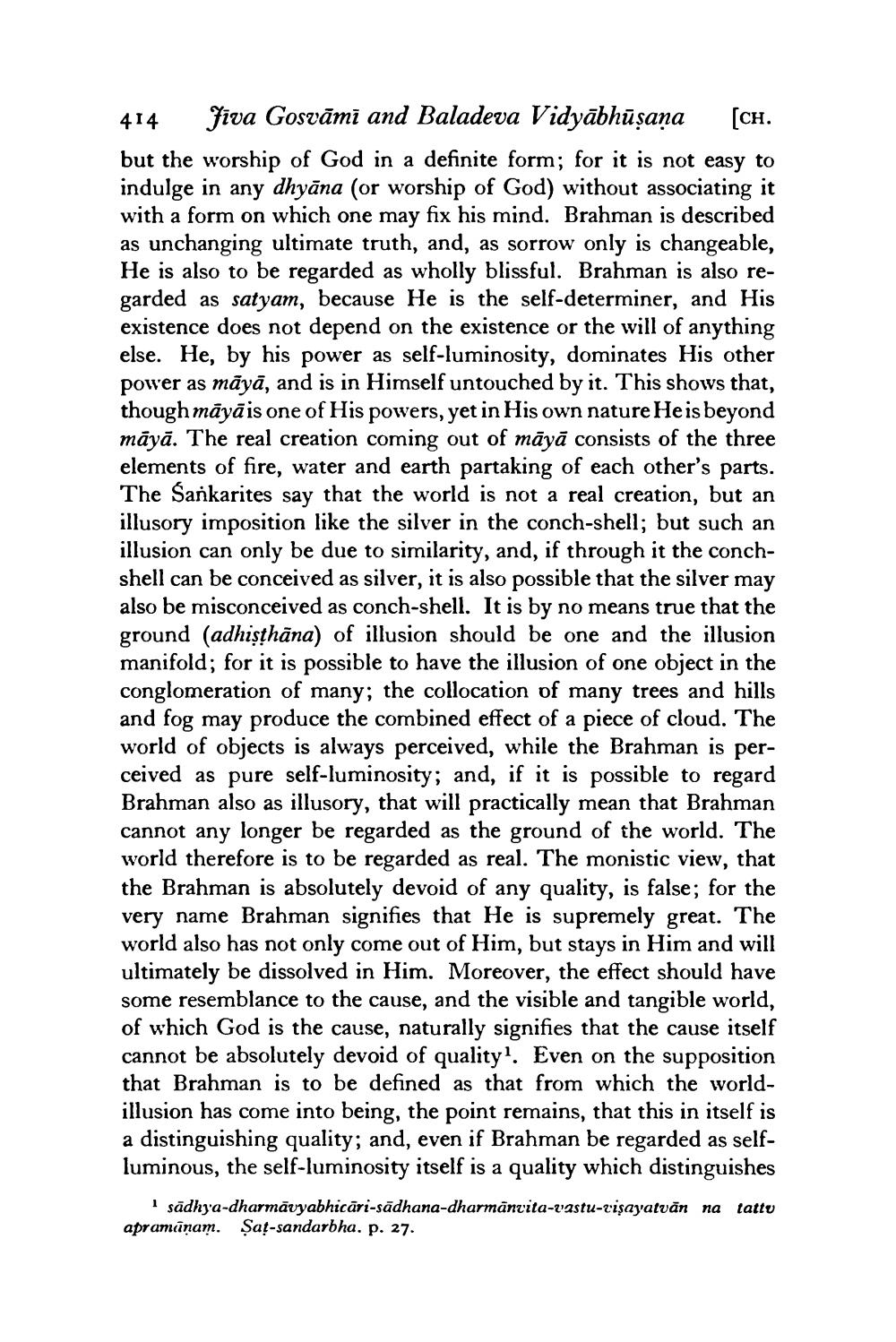________________
414 Jiva Gosvāmi and Baladeva Vidyābhūṣaṇa [CH. but the worship of God in a definite form; for it is not easy to indulge in any dhyāna (or worship of God) without associating it with a form on which one may fix his mind. Brahman is described as unchanging ultimate truth, and, as sorrow only is changeable, He is also to be regarded as wholly blissful. Brahman is also regarded as satyam, because He is the self-determiner, and His existence does not depend on the existence or the will of anything else. He, by his power as self-luminosity, dominates His other power as māyā, and is in Himself untouched by it. This shows that, though māyā is one of His powers, yet in His own nature Heis beyond māyā. The real creation coming out of māyā consists of the three elements of fire, water and earth partaking of each other's parts. The Sankarites say that the world is not a real creation, but an illusory imposition like the silver in the conch-shell; but such an illusion can only be due to similarity, and, if through it the conchshell can be conceived as silver, it is also possible that the silver may also be misconceived as conch-shell. It is by no means true that the ground (adhisthāna) of illusion should be one and the illusion manifold; for it is possible to have the illusion of one object in the conglomeration of many; the collocation of many trees and hills and fog may produce the combined effect of a piece of cloud. The world of objects is always perceived, while the Brahman is perceived as pure self-luminosity; and, if it is possible to regard Brahman also as illusory, that will practically mean that Brahman cannot any longer be regarded as the ground of the world. The world therefore is to be regarded as real. The monistic view, that the Brahman is absolutely devoid of any quality, is false; for the very name Brahman signifies that He is supremely great. The world also has not only come out of Him, but stays in Him and will ultimately be dissolved in Him. Moreover, the effect should have some resemblance to the cause, and the visible and tangible world, of which God is the cause, naturally signifies that the cause itself cannot be absolutely devoid of quality!. Even on the supposition that Brahman is to be defined as that from which the worldillusion has come into being, the point remains, that this in itself is a distinguishing quality; and, even if Brahman be regarded as selfluminous, the self-luminosity itself is a quality which distinguishes
sādhya-dharmāvyabhicāri-sādhana-dharmānrita-vastu-vişayatvān na tattu apramānam. Sat-sandarbha. p. 27.




